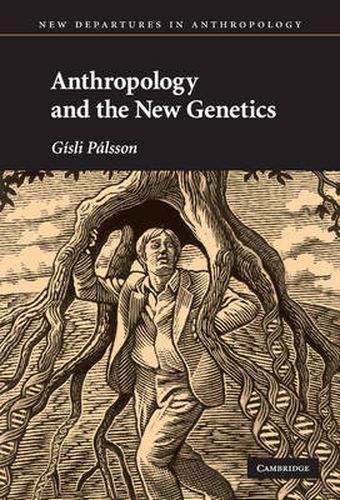Readings Newsletter
Become a Readings Member to make your shopping experience even easier.
Sign in or sign up for free!
You’re not far away from qualifying for FREE standard shipping within Australia
You’ve qualified for FREE standard shipping within Australia
The cart is loading…






The growth of ‘new genetics’ has dramatically increased our understanding of health, diseases and the body. Anthropologists argue that these scientific advances have had far-reaching social and cultural implications, radically changing our self-understanding and perception of what it means to be human; that we have become ‘biomedicalized’, fragmented and commodified - redefining our notions of citizenship, social relations, family and identity. This book shows how anthropology can contribute to and challenge the ways we have come to understand genetic issues. Exploring a range of issues and case studies in genetic research, it provides an ethnographic ‘reality-check’, arguing that we must look beyond the ‘gene-centrism’ of genetic codes, family trees and insular populations, to explore their wider cultural, ethical and philosophical implications. Including coverage of the controversial and widely discussed Icelandic Health Sector Database, this accessible survey will be welcomed by graduate students and researchers in social anthropology, human genetics and biotechnology.
$9.00 standard shipping within Australia
FREE standard shipping within Australia for orders over $100.00
Express & International shipping calculated at checkout
The growth of ‘new genetics’ has dramatically increased our understanding of health, diseases and the body. Anthropologists argue that these scientific advances have had far-reaching social and cultural implications, radically changing our self-understanding and perception of what it means to be human; that we have become ‘biomedicalized’, fragmented and commodified - redefining our notions of citizenship, social relations, family and identity. This book shows how anthropology can contribute to and challenge the ways we have come to understand genetic issues. Exploring a range of issues and case studies in genetic research, it provides an ethnographic ‘reality-check’, arguing that we must look beyond the ‘gene-centrism’ of genetic codes, family trees and insular populations, to explore their wider cultural, ethical and philosophical implications. Including coverage of the controversial and widely discussed Icelandic Health Sector Database, this accessible survey will be welcomed by graduate students and researchers in social anthropology, human genetics and biotechnology.